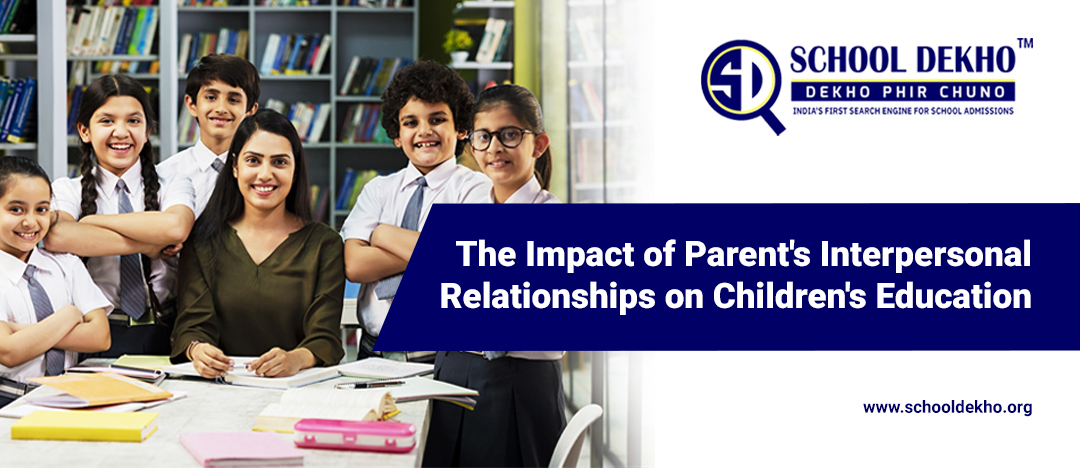
The Impact of Parent's Interpersonal Relationships on Children's Education
A child's education is shaped by various factors, and one significant influence is the quality of their parents' interpersonal relationships. The dynamics between parents not only affect the emotional well-being of the child but also have a profound impact on their academic performance and overall educational experience.
In this blog, we will explore the ways in which a parent's relationship can influence a child's education and provide insights into fostering a healthy environment for optimal learning outcomes.
Emotional Stability and Support:
Parents who have a stable and harmonious relationship tend to create a nurturing and secure environment for their children. When children witness their parents resolving conflicts amicably and expressing love and support for each other, they develop a sense of emotional stability. This emotional stability positively impacts their educational journey by reducing stress and anxiety levels, allowing them to focus better on their studies and perform well academically.
Role Modeling:
Parents serve as primary role models for their children. The quality of their relationship sets the foundation for children's understanding of healthy communication, problem-solving, and conflict-resolution skills. When parents exhibit effective communication and conflict-resolution strategies, children learn how to handle disagreements and develop strong interpersonal skills. These skills are crucial in educational settings, as they enable children to effectively engage with peers, teachers, and school authorities.
Parental Involvement:
The level of parental involvement in a child's education can be influenced by the quality of the parent's relationship. When parents have a positive relationship, they are more likely to collaborate and actively participate in their child's educational journey. They attend parent-teacher meetings, support homework completion, engage in educational discussions, and show interest in their child's progress. This active involvement enhances the child's motivation, self-esteem, and overall academic performance.
Academic Expectations and Support:
Parents who have a healthy relationship often have higher academic expectations for their children. They believe in their child's potential and provide the necessary support and encouragement to meet those expectations. A positive parental relationship fosters an environment where education is valued, and children are motivated to excel academically. Moreover, parents who communicate positively with each other are more likely to engage in open discussions about their child's educational goals and provide the necessary guidance and resources.
Emotional Intelligence:
Interpersonal relationships within the family significantly influence a child's emotional intelligence. When parents model empathy, understanding, and effective communication, children learn to recognize and regulate their emotions. Emotional intelligence plays a crucial role in a child's educational success as it enables them to navigate social interactions, build meaningful relationships with peers, and cope with academic challenges.
Conclusion: Parents play a pivotal role in shaping their child's educational experience, and their interpersonal relationship serves as a key determinant of success. By fostering a healthy and supportive relationship, parents provide a solid foundation for their children's emotional well-being, academic performance, and overall educational growth. Nurturing a positive environment at home, characterized by effective communication, conflict resolution, and active involvement, can lead to enhanced educational outcomes and set children on a path to lifelong success.
Contact with Us
Call: 1800 - 2588 - 074
Mail: info@schooldekho.org
Student’s Best Education Portal | School Dekho | India's First School Search Engine | Best Schools Near Me | Find Schools Near Me | Dekho Phir Chuno
#dekhophirchuno







Leave your thought here
Your email address will not be published. Required fields are marked *